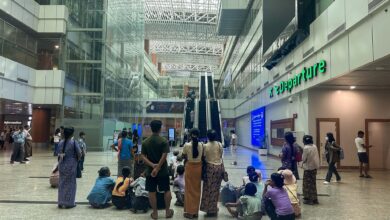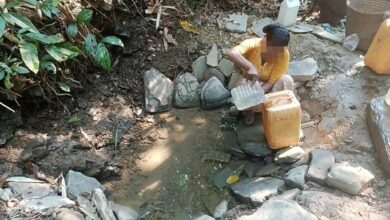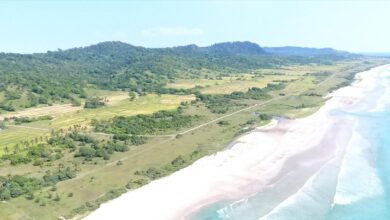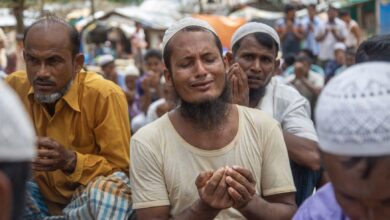
Most of Myanmar’s resistance fighters prefer to keep a low profile on social media; but one, a 47-year-old man from Myingyan, in Mandalay Region, is more than happy to show his face to those who would just as happily see him dead.
“I’m not afraid of them,” says Thet Naing Aung, a sturdily-built man with a greying beard and a determined look. “I’ve been fighting them since before I had a weapon. Now that I have weapons in my hands, I have nothing to fear at all.”
Thet Naing Aung—or Thet Gyi, as he is usually called by those who know him—is the leader of the Zero Guerrilla Force, one of many armed resistance groups that have emerged around the country in the months since the military seized power.
Like most other groups of its kind, the Zero Guerrilla Force is a largely anonymous outfit—a small army of faceless fighters who ambush troops, carry out hits on regime collaborators, and sabotage telecoms towers.
But as leader of the group, Thet Gyi stands out. On his Facebook page, for instance, he can be seen posing in front of an array of rifles as his juniors pay their respects to him at the start of this year’s annual Thadingyut festival.
While another photo shows him in an even more militant light—holding a rocket-propelled grenade launcher, ready to fire—he was not always so keen on displays of firepower.
The turning point came on March 3, when a young protester named Zin Ko Zaw was shot in the head in the same ward that Thet Gyi lived in in Myingyan. It was then that he decided he had to join the fight against a murderous regime.
But what truly radicalized him, he said, was witnessing firsthand the carnage that the junta would continue to inflict on innocent civilians over the ensuing weeks.
Before he actually joined the armed resistance movement, he spent his days trying to deal with the horrific situation unfolding around him, and around the country, as the junta unleashed hell on unarmed protesters.
He did this by risking his own life to recover the bodies of those murdered by the regime. He also formed a funeral committee and raised funds for the families of fallen youths.
In all, he pulled 22 bodies out the junta’s killing fields.
“I carried their bodies myself, cleaned them, and buried them. The more people I buried, the more my hatred for the military grew,” he said.

From volunteer to ‘terrorist’
Thet Gyi had a reputation for helping others in need long before the coup. According to one local volunteer, he regularly assisted Myingyan’s social welfare association with its Covid-19 relief efforts.
“He helped out at first as an external volunteer during the pandemic, but later joined the group as a member,” said the volunteer, who asked to remain anonymous.
But it was after the crackdowns began that Thet Gyi really started to be noticed in his community. In his neighbourhood, he was famous for showing up while the bullets were still flying to rescue bodies from the clutches of their killers.
“Whenever the military opened fire, he would arrive on the scene and just start collecting bodies while everyone else was running around in a panic,” said a local politician who also did not want to be identified.
There was little in Thet Gyi’s past to suggest that he would one day take the path of an armed insurgent.
After graduating from the Meiktila Technological Institute in 1997, he went into several different lines of work, from sculpting to recycling old vehicles and renting out cranes.
Politics held little appeal for him, but he always had an interest in finding practical ways to make a difference in people’s lives. By the time Covid-19 hit, he had amassed enough money to feel that he could afford to dedicate himself to charity work.
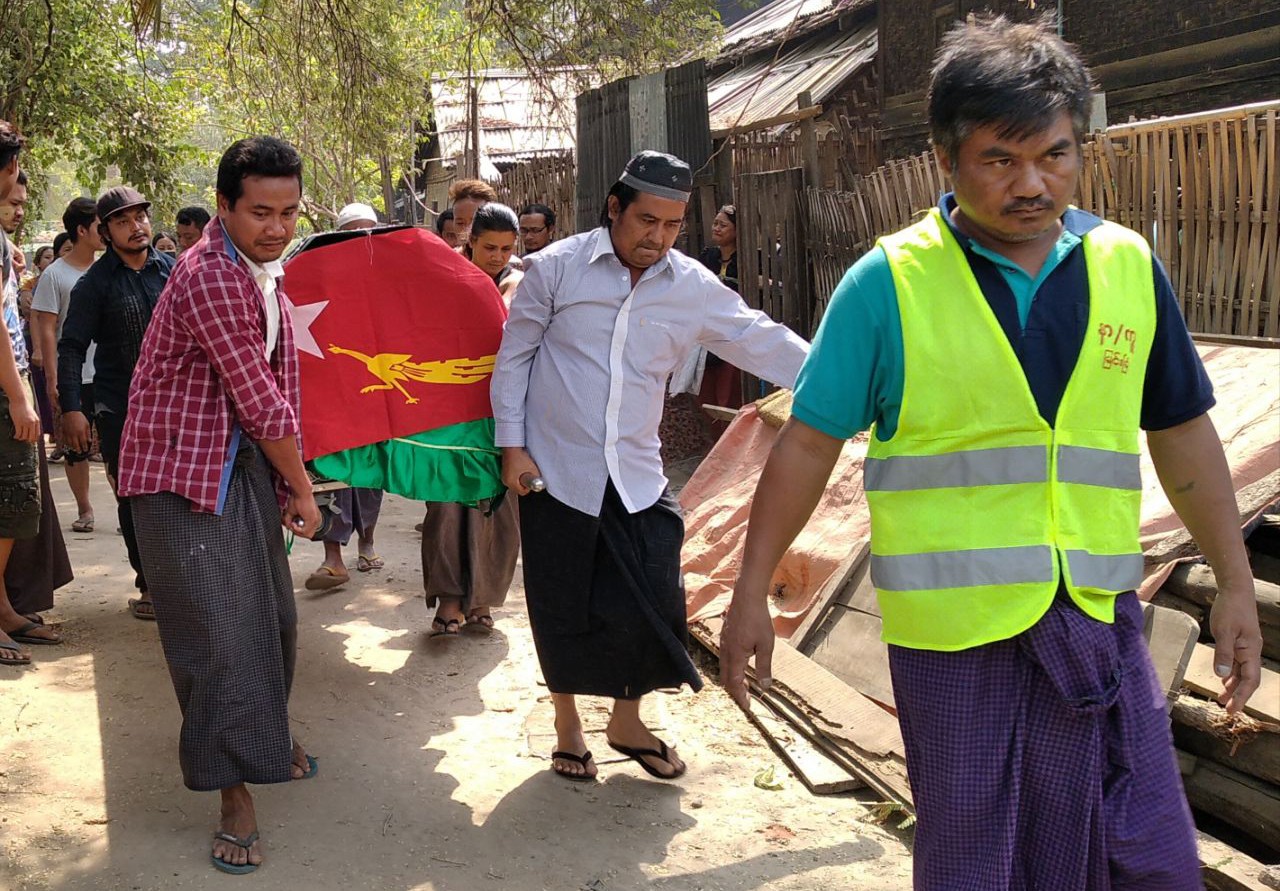
When the coup happened a year later, he was ready to play a different role, although it wasn’t immediately clear what that would be. It was only after finding himself drenched in the blood of young activists that he decided that combat was his true calling.
After a period of training in an area under the control of an armed group, he returned to his hometown to found the Zero Guerrilla Force. Active since April 18, it was among the first resistance groups formed in the wake of the coup.
Armed at first with handmade hunting guns, the group later acquired rifles and started using makeshift mortars in clashes with regime forces. Labelled a terrorist group by Myanmar’s junta, the Zero Guerrilla Force has killed at least 40 soldiers, including six army officers, according to Thet Gyi.
Its main targets, however, have been military informants and other junta collaborators. It has also destroyed a number of communications towers used by Mytel, a telecoms company partly owned by the military.
Nothing left to lose
So far, the deadliest mission carried out by Thet Gyi’s band of guerrillas has been an ambush on a military outpost in Mandalay Region’s Natogyi Township that left 11 soldiers dead and three others wounded on October 15.
Even before this incident, however, Thet Gyi had already been identified and targeted by the regime. In late September, a building he owned in Myingyan’s Sunlun ward was raided and all of his most prized possessions were confiscated.
“They couldn’t find me, much less capture me, so they took my belongings to deprive me of a livelihood,” he said.
The junta took everything he owned—from pots and pans to priceless antiques (including a vintage silver cup used by the great stage actor Shwe Man Tin Maung for his makeup and a sword that once belonged to a Shan prince).
Thet Gyi said he couldn’t begin to put a price on all the things he has lost because of his involvement in the armed resistance movement. (And as petty thieves, the regime’s forces certainly would have no idea of their value, he added.)
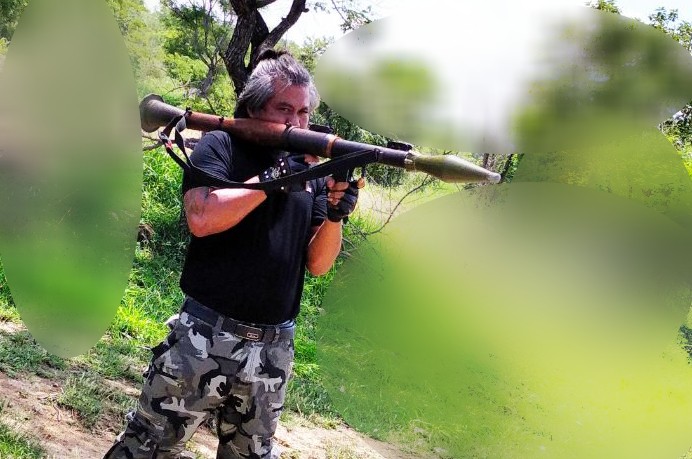
Now that he has nothing left to lose, Thet Gyi feels even closer to those who look to him for leadership.
“All of my comrades have been blessed by a monk. We’re not afraid to die in battle. Our group has exceptional unity. We’ve had no problem whatsoever to this day,” he said.
But even as he contemplates his own death, he dreams of a more peaceful future—of a time when weapons will no longer be needed. When that day comes, he says, he won’t hesitate to hand over all the arms he now has at his disposal and start a new life under a legitimate government.
Part of that life, he says, will be creating a new social welfare organization of his own. And he can think of no better name for it than one that has come to mean everything to him: Zero.
